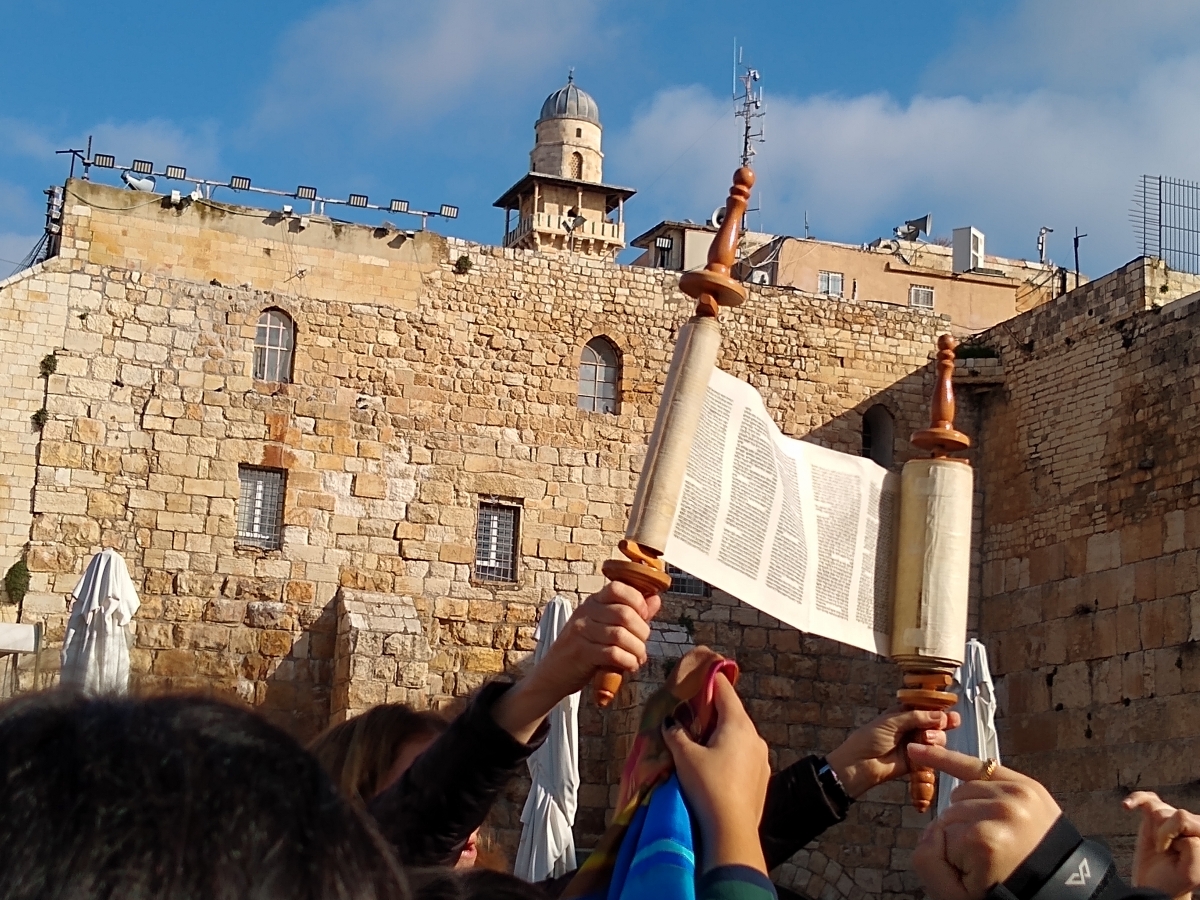
As I am contemplating writing this piece about the Parashah Chol HaMoeid Pesach, the world is being confronted by a global pandemic. Our world is upended in ways most of us have never experienced. Thus, there are many reasons to write about Jewish Ethics since the need for them is palpable and this parashah is often interpreted as being about them.
When I signed up to write the D’var Torah for this parashah, it was my intention to focus on this interpretation. At the same time I signed up to write, there was an announcement about the WRJ Women’s Journey to Israel Cultural Mission. It sounded fantastic and I thought there is no way I would go. I have a fear of flying, barely knew anyone who would be going, and visiting Israel was an idea I had long ago forsaken.
Over the course of ten months, I kept hearing about the trip and my desire to go on this particular adventure grew. I then began the pre-journey to the journey. I reached out to friends, engaged in a process called Brainspotting to get over my fear of flying, reached out to my friends again, stopped watching the news and before I left was given Tzedakah for the poor. I was as prepared as possible to face my fears.
I returned from my first trip to Israel three weeks ago. The feeling of freedom I experienced is immeasurable. My return occurred four days before quarantines began and most tour groups canceled. If this parashah was about Chanukah, I could easily write about miracles.
Related to the Jewish ethics interpretation of the Parashah Chol HaMoeid Pesach, is the idea about knowing God. We read:
“Moses said to the Eternal, "See, You say to me, 'Lead this people forward,' but you have not made known to me whom you will send with me. Further, you have said, 'I have singled you out by name, and you have, indeed, gained My favor.'"- Exodus 33:12
On the Shabbat of Passover, we are reminded of the age-old desire to know God. Moses implores God to let him see God. While God will not allow Moses to see God’s face, God tells Moses, “I will make my goodness pass before you……Perhaps we experience the divine presence through the goodness we create in the world. The Torah then sets forth the thirteen attributes of God… By emulating these very attributes, we create the goodness which allows us to know God” (https://reformjudaism.org/learning/torah-study/chol-hamo-eid-pesach)
As I contemplate this D’var Torah some more, it is a sunny afternoon, the world is shut-down and like last Shabbat afternoon, my dog is thrilled for the unusual occurrence of a walk with “Mom.” As we travel the neighborhood, I can hear myself “shoulding” myself (shout out to my Rabbi). I “should” write about the Coronavirus. I decide to come home and look up descriptions of Shabbat.
Shabbat, a weekly 25-hour observance, is sometimes described as a time we turn from the profane to the sacred. It is also defined as a “dedicated time each week to stop working and focus more on the pleasures of life.” (https://reformjudaism.org/what-shabbat-intro-jewish-sabbath)
These ideas about Shabbat assuage my “shoulding.” I turn inward, away from the uncertainties of the week; reflect on the pleasure of a lifetime, visiting Israel, and contemplate knowing God on my trip.
Although not ones’ typical “first-timers” trip to Israel, this one called to me. Arts, culture, the spa!, food, spirituality; all woven together with threads informed by Reform and Progressive Judaism. I had amazing experiences in Israel that included two post-tour days of sightseeing. The list of activities plentiful (and dizzying) and the pictures too numerous to count. I will highlight two events that enriched my connection to the Reform Movement as well as to WRJ.
The first is my visit to the Kotel with the Women of the Wall on Rosh Chodesh. Friends ask if going to the Wall was a religious experience. It pains me to acknowledge that the distraction caused by the ultra-orthodox inhibited my ability to be fully present and take in the enormity of the service. However, when I allow myself to focus on seeing the Torah that had to be smuggled in for prayer, seeing my WRJ friends read from it, watching WRJ friends and strangers linked arm in arm after the service in a show of solidarity and protection, I am reminded if we change the angle of our vision, even slightly, that even in struggle, moments of goodness and joy can be found.

Another impactful experience was visiting the Leo Baeck Educational Center. For the first time, I finally understand why WRJ does so much fundraising! To see and hear about a program that brings Arab and Israeli children, and by necessity adults, together is awe-inspiring. The WRJ YES Fund helps keep this program operating. It is definitely a beacon of Jewish ethics and values.
In addition to the many excursions, phenomenal food, educational talks, jewelry buying, song and prayer; what is deep within my soul, are the bonds formed with the women on this trip. If to know God is to know goodness, then I had many encounters with God during my inaugural visit to the Promised Land.
Lisa B. Schwartz, Ph.D. is a WRJ Board Member who lives in Yardley, PA with her dog Lila. She has a private psychotherapy practice and specializes in sex therapy. Thanks to my proofreaders Peggy Kleinplatz, Ph.D. and Iris Stendig-Raskin, CRNP.
Related Posts

Parashat Yom Rishon shel Rosh HaShanah

Cultivating a Culture of Accountability and Belonging

